Wang Xiqin, president of Tsinghua University, headed a delegation to Germany's RWTH Aachen University (RWTH Aachen) and the Technical University of Munich (TUM) to further strengthen bilateral strategic collaboration from January 12 to 14.
At a meeting with RWTH Aachen Rector Ulrich Rüdiger and Vice-Rector for International Affairs Ute Habel on January 12, Wang noted that the partnership between two universities can be dated back to the 1980s and that their joint graduate program has drawn the participation of over 1,000 students, becoming a successful connection between Chinese and German universities since its establishment in 2001.
Wang described the reform and development of Tsinghua University and called on the two sides to deepen bilateral exchanges and seek more cooperation opportunities.
Rüdiger welcomed Wang and said that RWTH Aachen is proud of the long-term stability of its strategic cooperation partnership with Tsinghua University, attaches great importance to cooperative projects between them, and will seek wider and deeper collaboration and exchanges in the future.
The visiting delegation of Tsinghua University also brought with them diplomas and degree certificates for German graduate students of the joint education program who could not visit China and receive their certification in person because of the COVID-19 pandemic in the past three years.
After the meeting, Wang visited the Central Facility for Electron Microscopy and other research institutions at RWTH Aachen where he held in-depth discussions with experts there over cutting-edge technologies and prospective innovation-driven cooperation between the two universities.
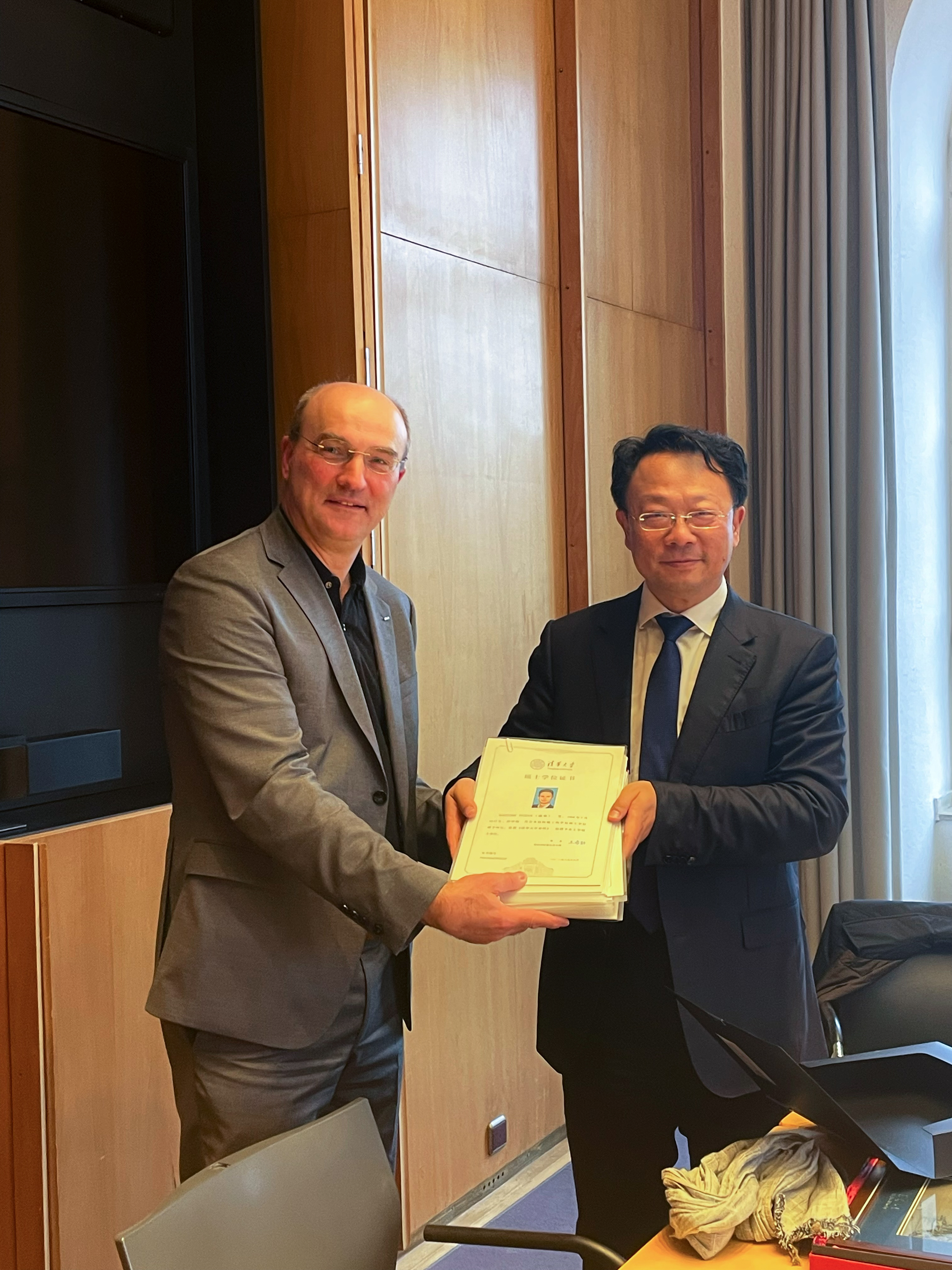
Wang Xiqin (R), president of Tsinghua University, presents to RWTH Aachen Rector Ulrich Rüdiger with graduation certificates for graduates of the joint program between the two universities who were unable to visit China and receive their certificates in person because of the COVID-19 pandemic in the past three years.
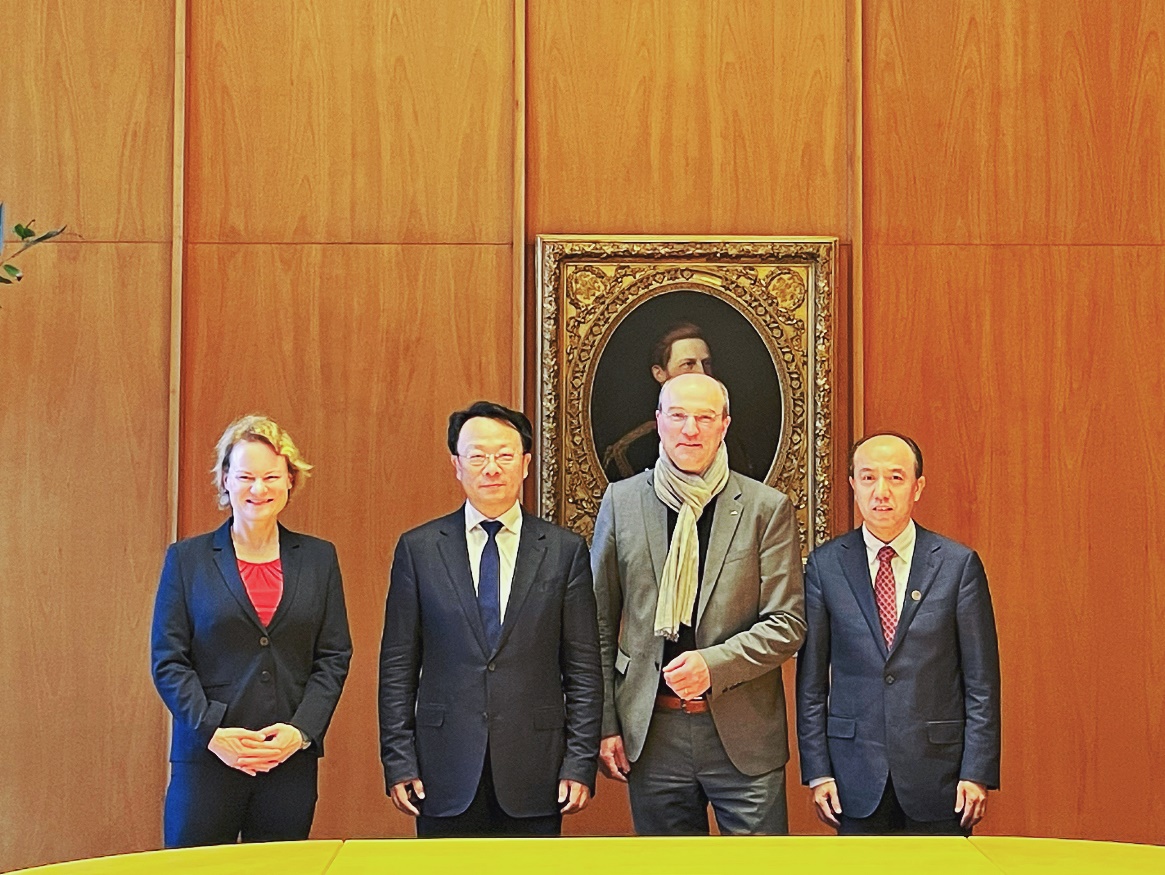
Wang Xiqin, president of Tsinghua University, poses for a group photo with senior RWTH officials.
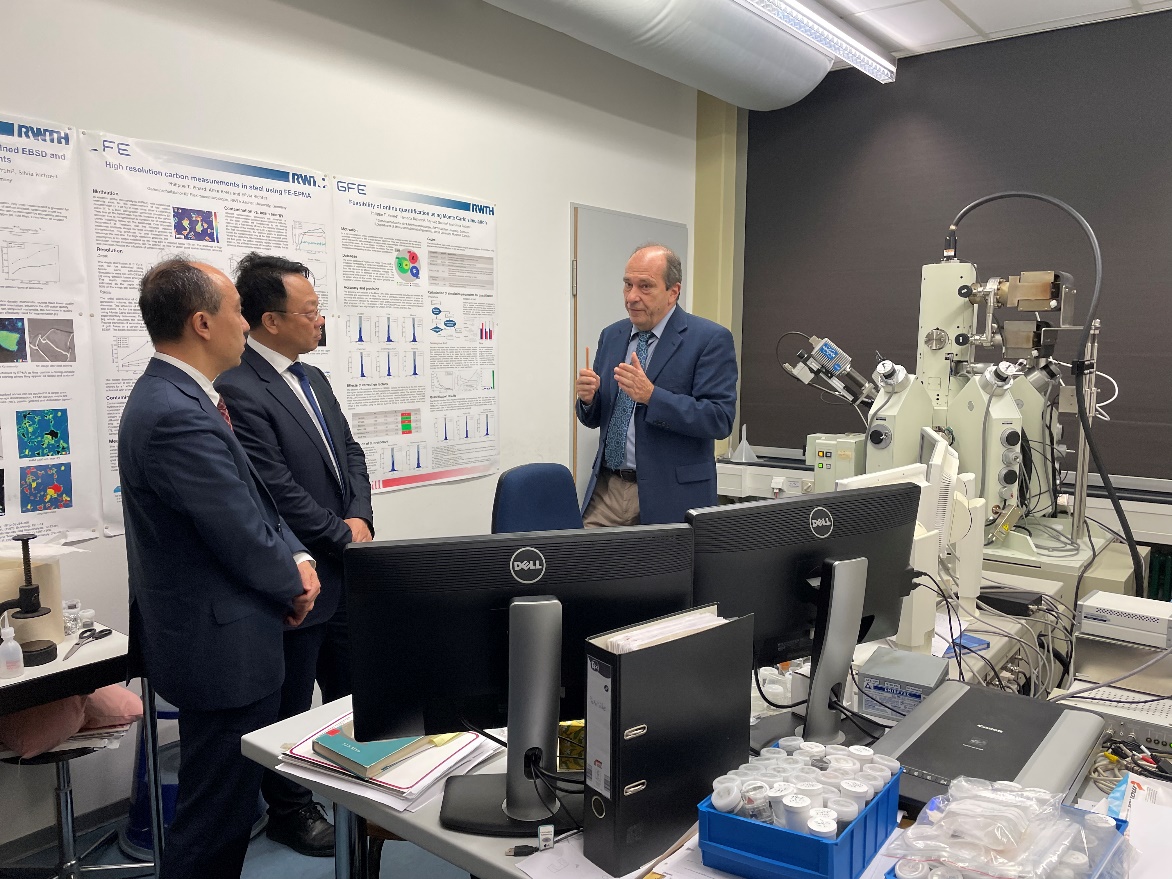
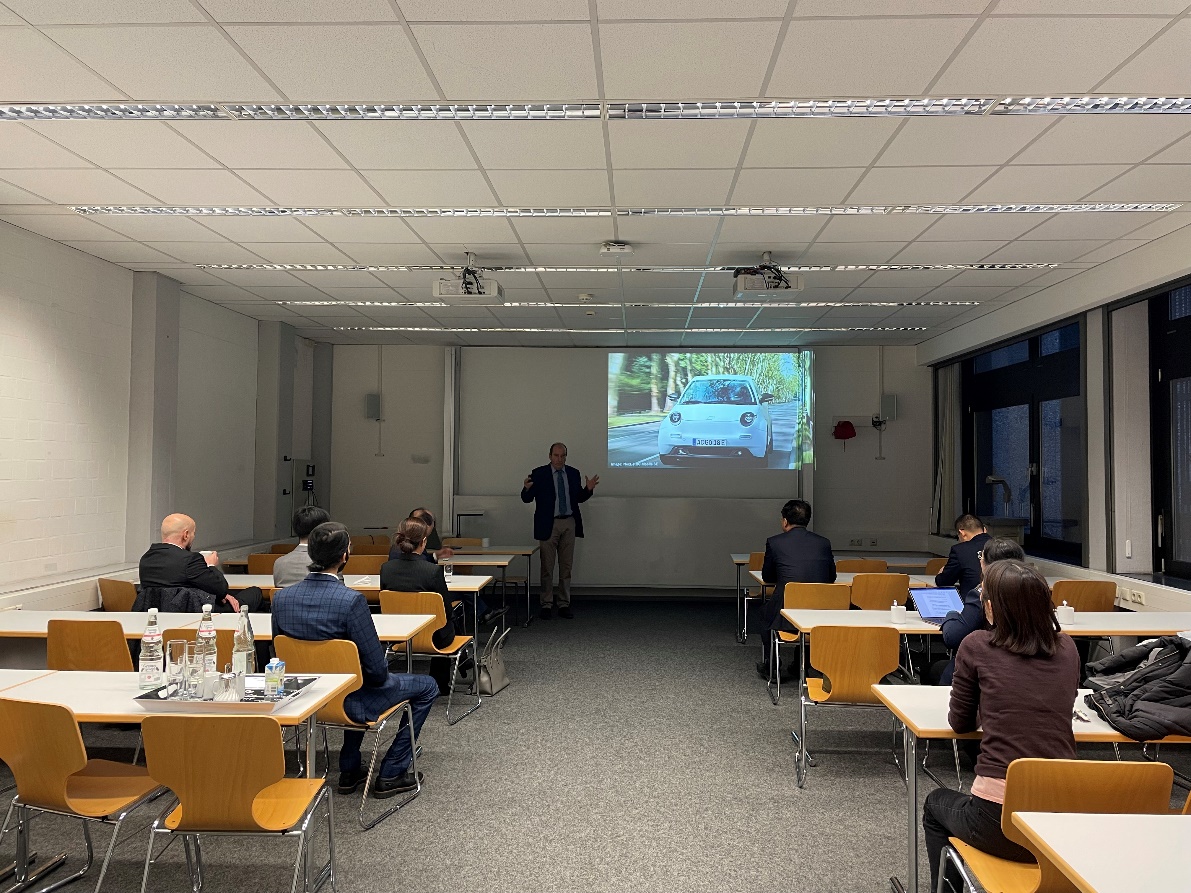
Wang Xiqin, president of Tsinghua University, visits laboratories and holds talks with experts at RWTH Aachen University.
Wang and the delegation paid a visit to the TUM's campuses in Garching and Munich on January 13. He met with TUM President Thomas F. Hofmann and other senior officials of the German university at its Munich campus.
Juliane Winkelmann, senior vice-president of TUM for International Alliances & Alumni, Claudia Peus, senior vice-president of TUM for Talent Management & Diversity, and Gerhard Kramer, senior vice-president of TUM for Research & Innovation attended the meeting.
Wang said that there is a solid foundation for the cooperation between Tsinghua University and the TUM and that their collaborative partnership bears great significance for the further development of higher education in China and Germany and beyond.
Noting that worldwide higher education has been faced with lots of challenges and that universities of all countries have been undertaking reform and restructuring against the backdrop of profound changes in international landscapes, Wang said that Tsinghua University has closely followed the workforce development strategy, pushed for all-round reform in such fields as talent management, education, sci-tech research, and international exchanges and cooperation, and made great strides in modernization of its governance system and capacity over the past decade.
Wang pointed out that talent is the top priority, and talent cultivation is the central task of universities. He summed up four typical and globally significant university talent cultivation models, namely the model of innovative universities focusing on professionals and postgraduate training developed by the US, that of research universities focusing on disciplines and postgraduate training developed by Germany, the liberal arts college pattern focused on disciplines and undergraduate training developed by the British, and the model of vocational universities focusing on professionals and undergraduate training developed by the former Soviet Union.
Wang said that Tsinghua University is striving to make full use of those conventional educational models in its own talent cultivation. He emphasized that higher education shapes the future of mankind, and world-class universities have the responsibility to work together to cope with global challenges. Tsinghua University is willing to strengthen its cooperation with the TUM on cross-disciplinary research and frontier technologies on the basis of complementary strengths, resource sharing and mutual benefit.
Hofmann said that the delegation of Tsinghua University was the first Chinese university delegation that had visited the TUM since the outbreak of the COVID-19 pandemic. He underscored the importance of inter-university cooperation to enable the international community to better cope with all kinds of risks and challenges, reviewed the notable achievements of the TUM in discipline integration, innovation and entrepreneurship, international cooperation and lifetime education, and looked forward to more exchanges and cooperation with Tsinghua University in scientific research, student exchange and joint education programs, innovation and entrepreneurship, and personnel training.
When visiting the TUM campus in Garching, Wang held a meeting with Thomas Hamacher, director of the Munich Institute of Integrated Materials, Energy and Process Engineering (MEP), Alois Knoll, chair of Robotic/AI/Embedded Systems, and leading figures from other disciplines.
Later, Wang, accompanied by the Center’s Vice President Helmut Schönenberger, also visited the TUM Entrepreneurship Center and heard reports by young entrepreneurs describing their business experiences.
Wang Hongwei, vice-president of Tsinghua University, signed an exchange program for doctoral students between Tsinghua University and the TUM with Juliane Winkelmann, senior vice-president of the TUM for International Alliances & Alumni, and Gerhard Kramer, senior vice-president of the TUM for Research & Innovation, which was witnessed by Wang Xiqin and Hofmann.
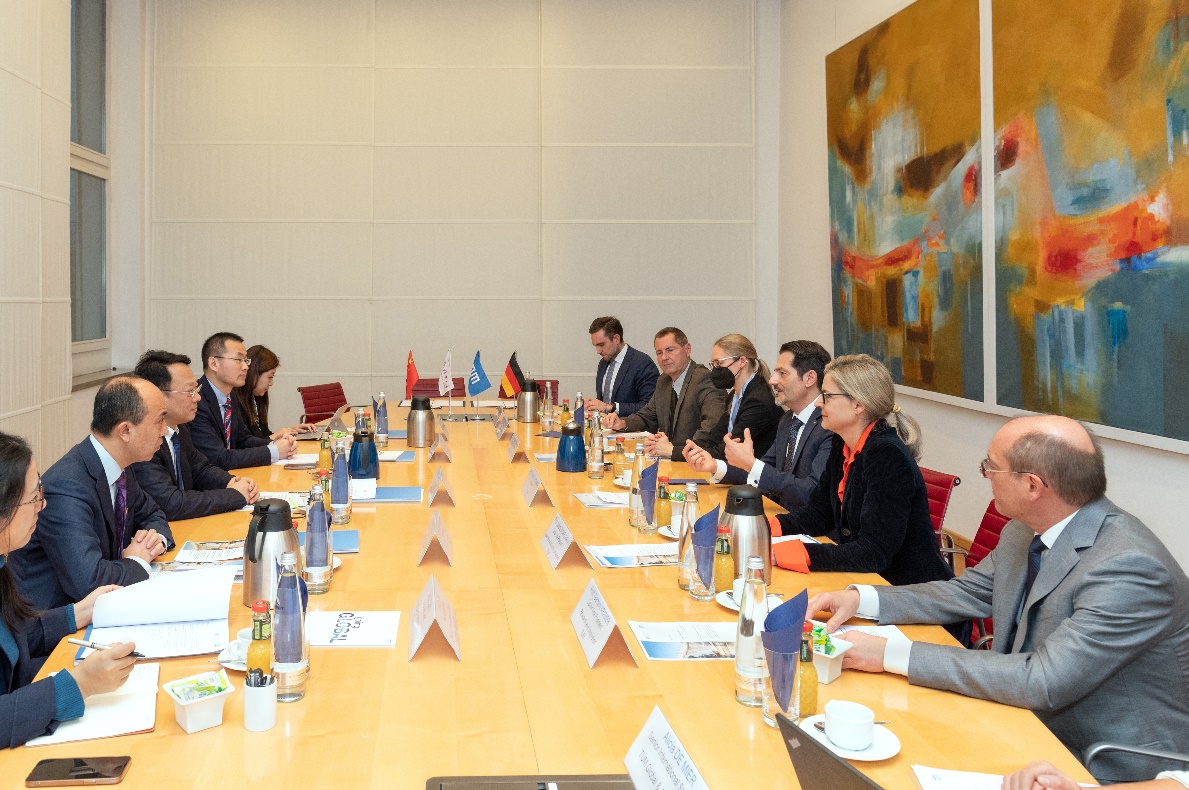
The visiting Tsinghua University delegation meets with their counterparts from the Technical University of Munich.
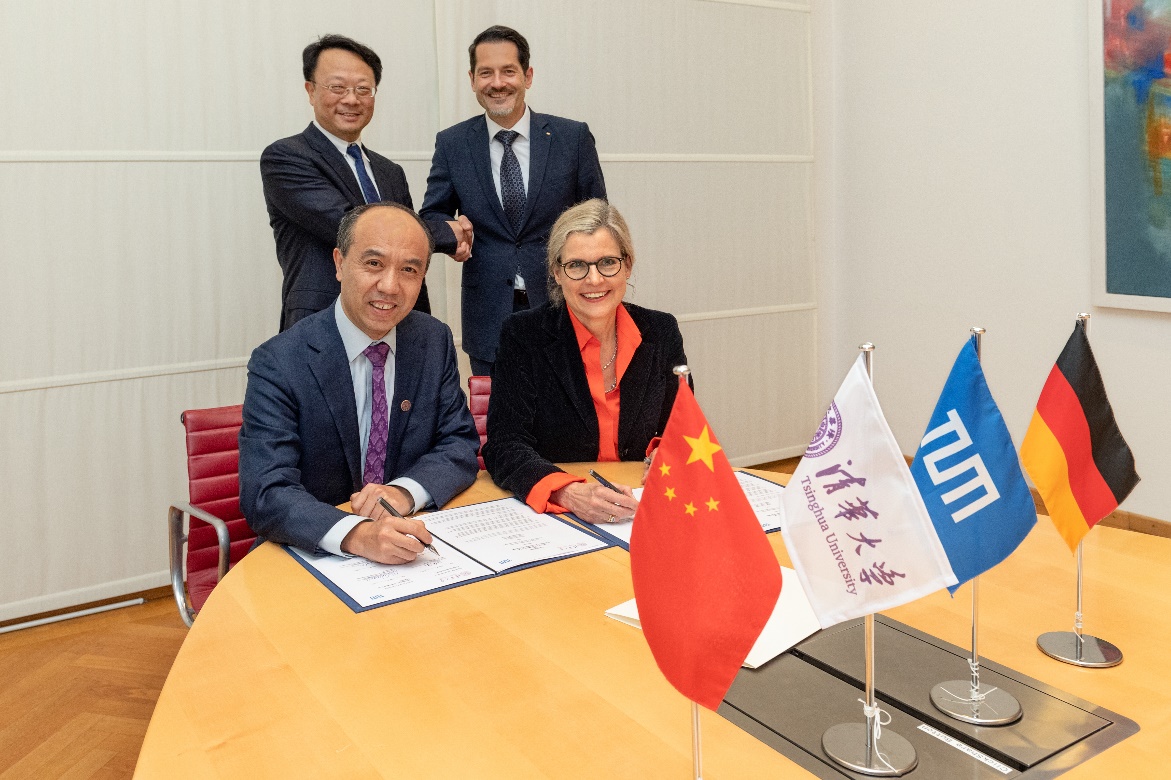
Representatives of Tsinghua University and the Technical University of Munich sign an exchange program for doctoral students.
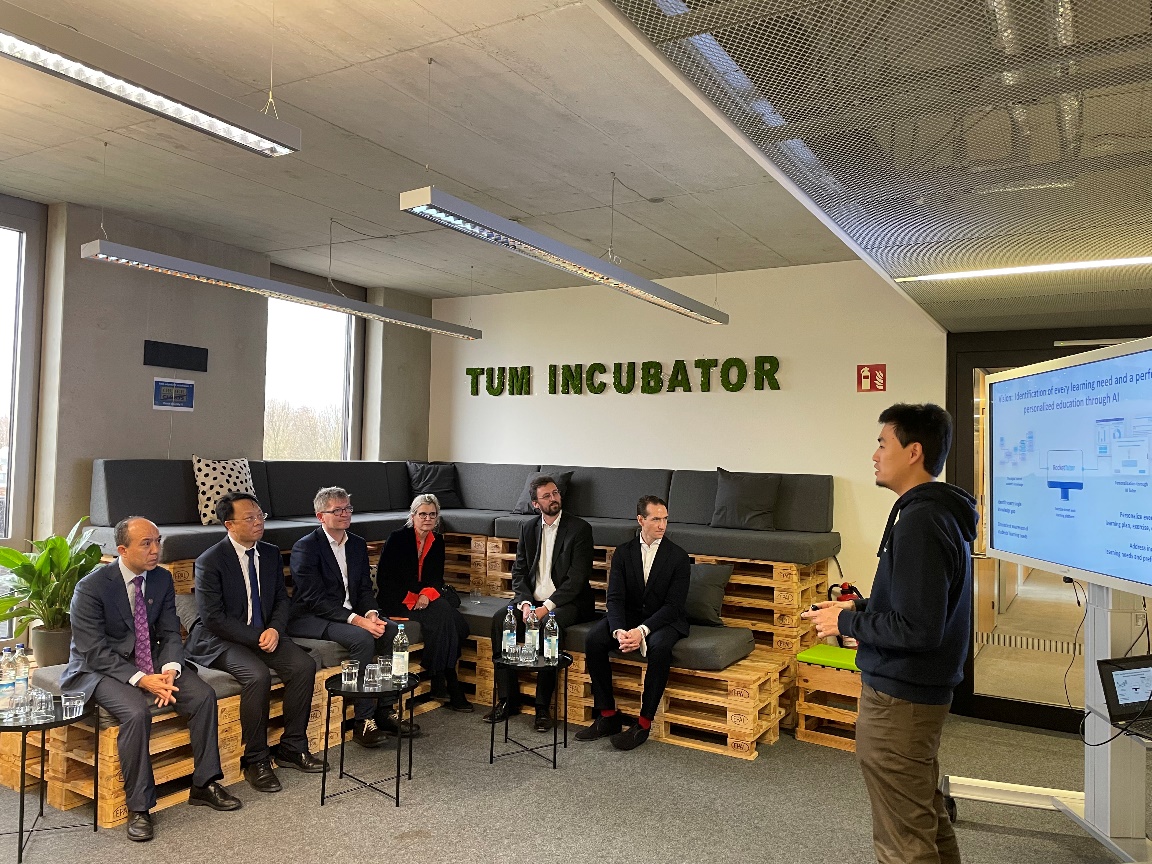
Wang Xiqin, president of Tsinghua University, visits the TUM Innovation & Entrepreneurship Center.
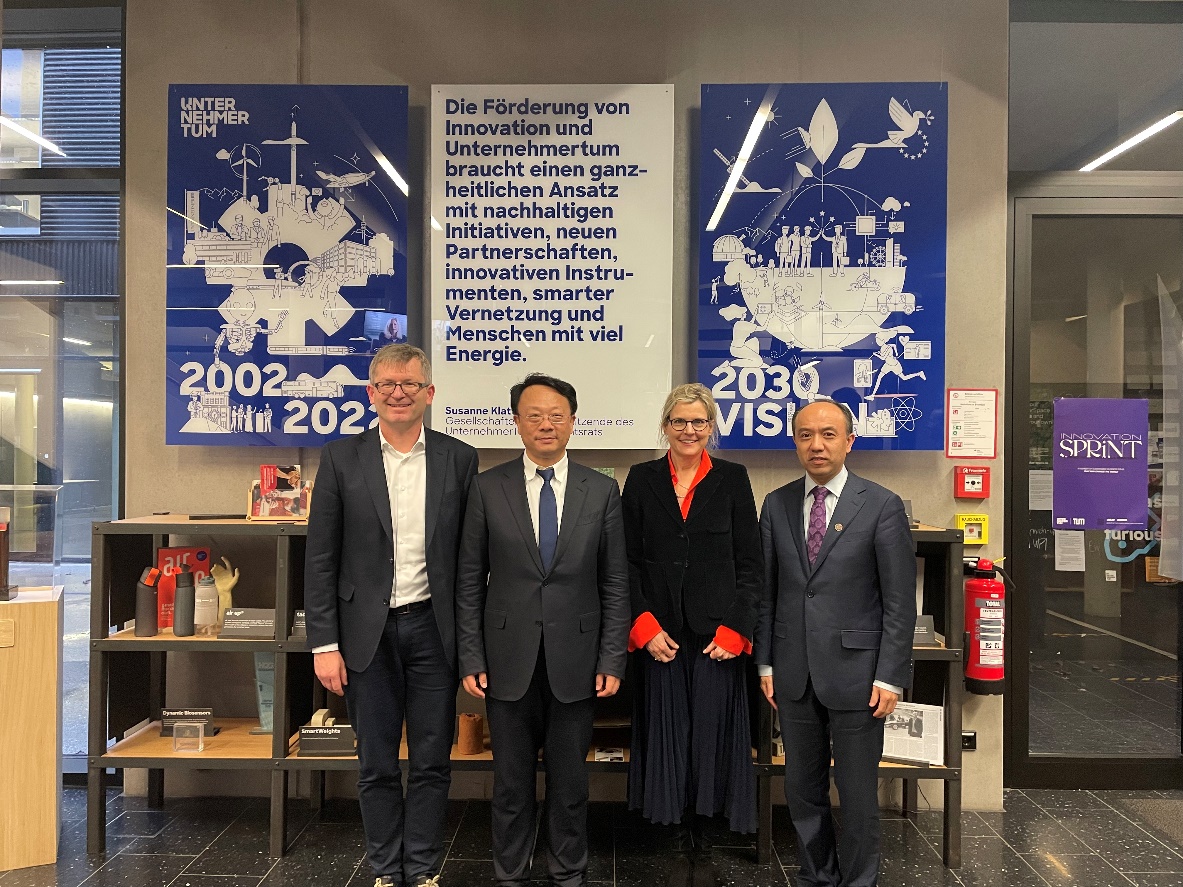
Wang Xiqin, president of Tsinghua University, visits the TUM campus in Garching.
During their stay in Germany, the visiting delegation also attended a meeting with Tsinghua alumni who work and live there. Wang expressed his thanks for their care for and support of the university's overall work and called on them to promote its spirit, facilitate understanding and cooperation between China and the West, and make contributions to the building of a community with a shared future for mankind.
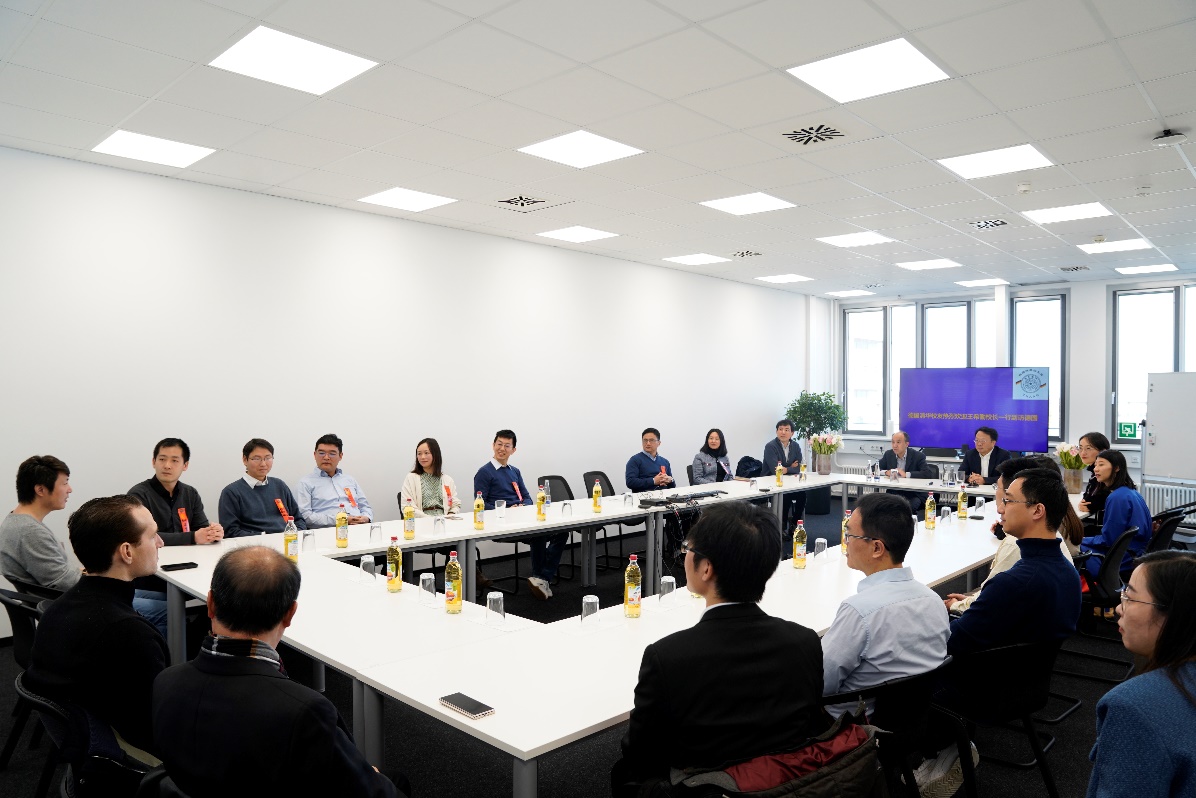
Members of the visiting delegation meet with Tsinghua alumni in Germany.
Editor: Li Han

